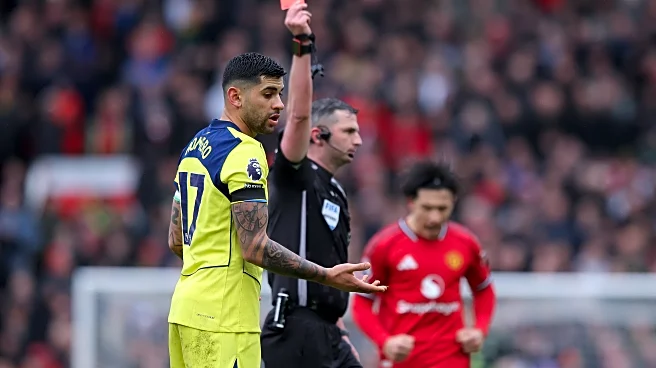What is the story about?
What's Happening?
Col. (Ret.) Miri Eisin of the International Institute for Counterterrorism at Reichman University has discussed the challenges in pressuring Hamas to release Israeli hostages in Gaza. Eisin notes that pressure could come from Egypt or Hamas's own people, but the United States does not exert influence on Hamas. The complexity of Hamas's leadership, with differing voices in Qatar and Gaza, complicates efforts to secure the hostages' release.
Why It's Important?
The discussion highlights the geopolitical complexities in negotiating the release of hostages held by Hamas. The situation underscores the limitations of international influence on Hamas and the challenges in resolving the humanitarian crisis. The lack of U.S. pressure on Hamas reflects broader diplomatic challenges in the region, impacting efforts to mediate the conflict and secure hostages' release. The situation has significant implications for regional stability and international relations.
What's Next?
Efforts to pressure Hamas may involve diplomatic channels through Egypt or internal pressure from within Gaza. The international community may increase diplomatic efforts to mediate the conflict and address the humanitarian crisis. The complexity of Hamas's leadership suggests ongoing challenges in negotiating hostages' release, impacting regional stability and diplomatic relations.

















